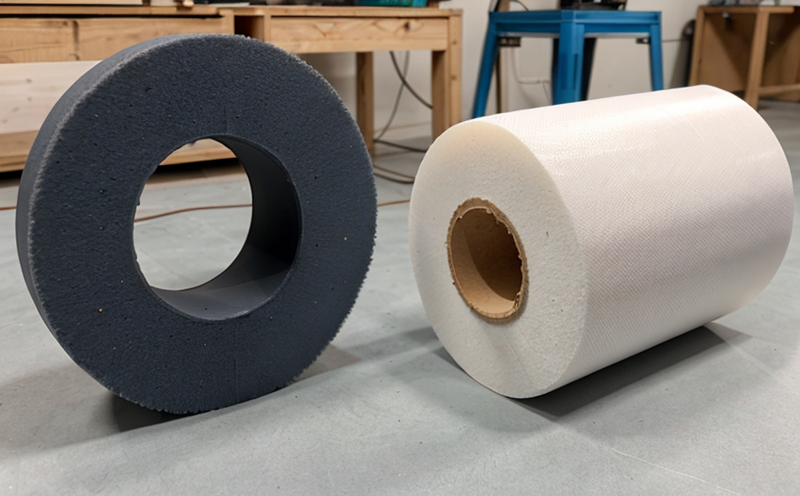JIS K 7113 Tensile Testing of Plastic Materials Used in Furniture
The JIS K 7113 standard is a critical tool for quality assurance and compliance within the furniture industry, especially concerning plastic materials. This test ensures that the plastic components used in furniture meet rigorous physical performance requirements. Compliance with these standards can enhance product durability and safety, thereby increasing consumer trust and satisfaction.
The tensile testing procedure, as specified by JIS K 7113, aims to determine the tensile strength and modulus of elasticity of plastic materials commonly used in furniture manufacturing. This test evaluates how much force a material can withstand before it begins to deform or rupture under tension. Understanding these properties is crucial for ensuring that furniture components are capable of withstanding the stresses they will encounter during use.
The test involves preparing specimens according to specified dimensions and orientation, which ensures consistency across all samples tested. Once prepared, the specimens undergo a tensile loading process until failure occurs. During this process, the force applied is measured accurately using sophisticated testing machines equipped with load cells capable of providing precise readings throughout the experiment.
The results obtained from JIS K 7113 tensile tests are essential for several reasons:
- They provide objective data on material quality, which is vital for meeting industry standards and regulations.
- These metrics help identify any weaknesses or deficiencies in the design of furniture components early in the development cycle.
- The information gathered can also guide improvements in manufacturing processes to enhance overall product performance and longevity.
By incorporating JIS K 7113 tensile testing into their quality control protocols, furniture manufacturers can demonstrate commitment to excellence and reliability. This approach not only satisfies regulatory requirements but also fosters innovation by encouraging continuous improvement in materials science.
In conclusion, JIS K 7113 tensile testing plays an indispensable role in ensuring the integrity of plastic components used in furniture products. Its application contributes significantly towards maintaining high standards of quality and safety across various sectors within the industry.
Applied Standards
The JIS K 7113 standard is part of a broader set of Japanese Industrial Standards (JIS) that governs numerous aspects of materials testing. Specifically, it focuses on determining the tensile properties of plastic materials intended for use in furniture applications.
This particular test complies with ISO 528-3:1997 which provides guidance on how to prepare and perform tensile tests on solid plastic specimens. Additionally, ASTM D638-03(2014) offers alternative methods that can be used interchangeably with JIS K 7113 depending upon specific project needs or regional preferences.
Compliance with these standards ensures consistency in testing procedures and results internationally, facilitating easier trade between countries adhering to similar regulations. It also allows for better communication among stakeholders involved in material selection and manufacturing processes.
Competitive Advantage and Market Impact
Adhering to JIS K 7113 standards can significantly enhance a company's competitive edge by setting higher expectations for product quality. Consumers increasingly demand sustainable and durable products, and meeting such stringent testing criteria sends a strong message about the brand’s dedication to excellence.
In terms of market impact, compliance with these standards opens doors to international markets where similar standards are enforced. It builds trust among customers who prioritize safety and reliability in their purchases. Furthermore, it provides an opportunity for companies to differentiate themselves through superior performance metrics compared to competitors not adhering to these stringent guidelines.
From a business perspective, investing time and resources into JIS K 7113 tensile testing can lead to cost savings over the long term by reducing rework due to poor-quality materials or design flaws. It also helps in maintaining good relationships with suppliers who are committed to producing high-quality raw materials.
In summary, embracing JIS K 7113 ensures not only regulatory compliance but also contributes positively towards brand reputation and market position.
Use Cases and Application Examples
Tensile testing plays a crucial role in evaluating the mechanical properties of materials used in furniture production. Here are some specific scenarios where this test is particularly relevant:





